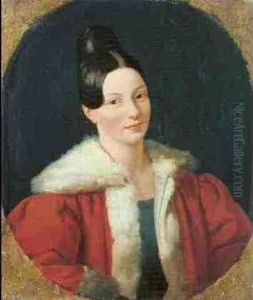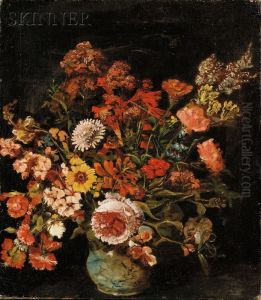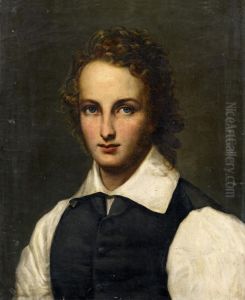Karl Christian Aubel Paintings
Karl Christian Aubel was a German artist born in 1899, whose work contributed significantly to the art movements of the early to mid-20th century. Although not as widely recognized as some of his contemporaries, Aubel's contributions to the fields of painting, printmaking, and sculpture have been appreciated by art historians and collectors alike. His artistic journey was marked by a continuous exploration of form and color, and his oeuvre reflects a diverse range of influences and styles, from Expressionism to more abstract tendencies that emerged later in his career.
Aubel's early work was deeply influenced by the turbulent socio-political climate of Germany during his formative years, particularly the aftermath of World War I and the rise of the Weimar Republic. This period was characterized by a significant artistic ferment, with movements such as Expressionism and Dada challenging traditional aesthetics and cultural norms. Aubel, like many artists of his generation, was drawn to these avant-garde movements, which sought to express the complexities and anxieties of modern life. His early paintings and prints often depicted stark, emotionally charged scenes, utilizing bold colors and dynamic compositions to convey a sense of unrest and upheaval.
As the years progressed, Aubel's style evolved, reflecting broader changes in the art world as well as his personal experiences. The rise of the Nazi regime and the onset of World War II had a profound impact on Aubel, as it did on many European artists of the time. His work from this period often incorporated symbolic elements and a heightened sense of abstraction, as he sought to grapple with the horrors and absurdities of the era. Following the war, Aubel's art took on a more introspective quality, with a renewed focus on formal experimentation and the exploration of abstract motifs. Despite the challenges he faced, including periods of political persecution and artistic censorship, Aubel continued to produce a prolific body of work until his death in 1959.
Throughout his career, Karl Christian Aubel remained committed to the idea of art as a vehicle for emotional expression and intellectual inquiry. His legacy, though perhaps not as widely celebrated as that of some of his peers, is characterized by a relentless pursuit of artistic innovation and a deep sensitivity to the human condition. Aubel's work continues to be studied and admired by those who appreciate the complexity and diversity of 20th-century art.


